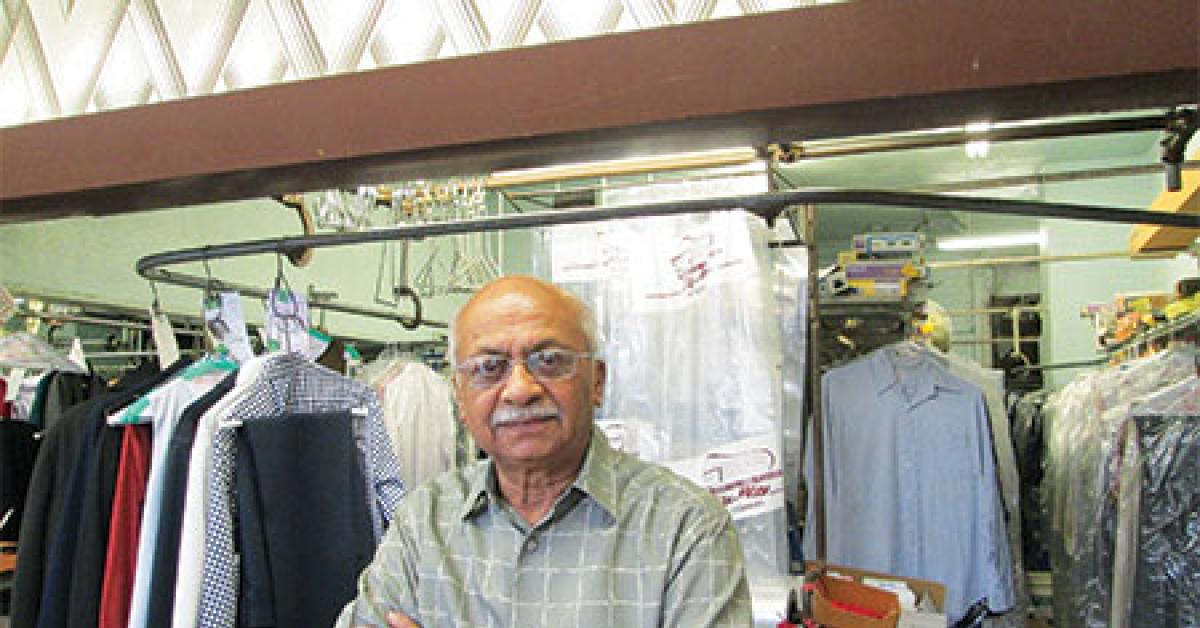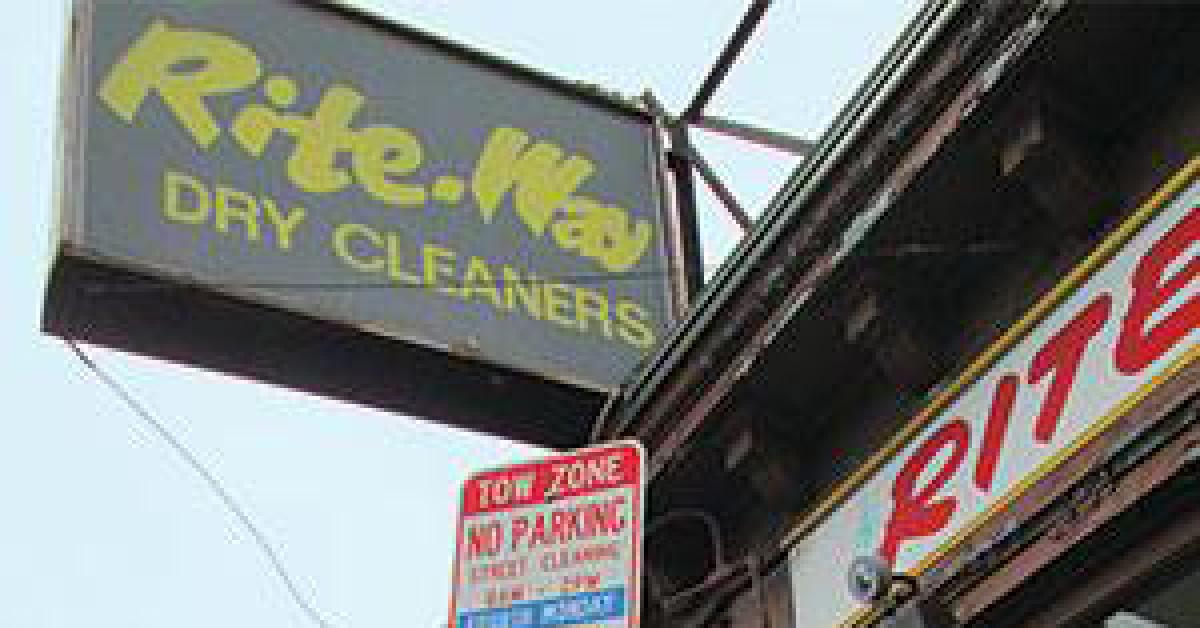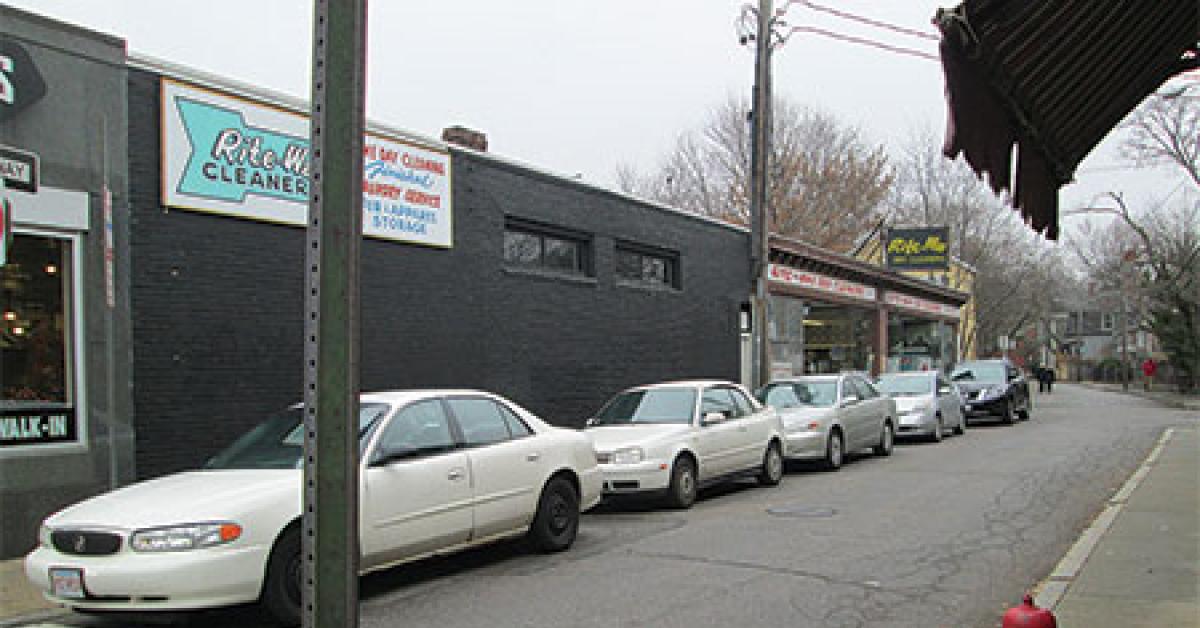CAMBRIDGE, Mass. — The allure of a Main Street location is potent. You have greater passerby visibility. You can advertise specials, and people will watch out for them. You have a 24/7 advertisement—your retail establishment. You can catch late-night travelers with a well-lit front. Directions are easier to give and to follow. Walking traffic sees your store every day. Everyone likes to patronize a Main Street shop.
But a Main Street location might not be for everyone. Babu Patel, owner of Rite-Way Dry Cleaner, is off the main drag—Massachusetts Avenue—and on a side street—Hudson Street. His shop is visible from the corner, but it is 100 feet in. Yet, the shop has been around since 1948, and Patel has drawn a comfortable living from it since 1986. That’s 27 years of ownership. He feels his off-the-Main-Street location is just fine.
For one thing, Patel thinks his rent is significantly less than that of Main Street tenants; one can’t be sure because everyone is so secretive. But I know one nearby Cambridge Main Street shop that pays $160,000 annual rent for 1,500 square feet. Yes, that is $160,000. Patel has 2,500 square feet and runs his plant, alterations department, and shoe repair from the premises. He feels that his rent is more than reasonable. As a round-figure estimate, possibly rent is 50% of what it would be on Main Street, 100 feet away. That is a powerful incentive, and one that keeps costs in manageable proportion.
Secondly, Patel has free parking for five or six cars directly in front of his store. In Cambridge, that’s a major plus. That feature alone would win many area residents as customers.
“This is a big advantage,” Patel says. “There are a lot of dry cleaners on Mass. Ave., but none have free parking. All Mass. Ave. has metered parking. For one thing, it’s very hard to find an open spot. Secondly, it’s difficult to back up and parallel park in a crowded thoroughfare. Finally, it costs money: 25 cents for 15 minutes. If someone has to walk a bit, they might put two quarters in the meter. Nobody likes to do that. My customers are used to easy parking.”
Patel’s front sidewalk has official city signs that read “Tow Away Zone - No Parking.” Right below it, on the same pole, a sign reads, “No Idling Allowed - 5 Minute Limit.” Well, that is just enough time to allow customers to pull in, do their business, and pull out. His customers know that the tow-away sign is only for people who try to park for any length of time. “The signs are deliberately confusing, but they work for me,” Patel says. “My customers all know to park in front.”
Moreover, Rite-Way gains more benefits from being right off the main drag. Massachusetts Avenue is a busy four-lane thoroughfare, running between Harvard Square and Porter Square. Arguably, Harvard Square is the most famous retail area in America. It sits alongside Harvard College, and is near the Charles River, which runs through Boston.
Traffic on Massachusetts Avenue is always heavy, day and night. So, over the years, many people have glimpsed the yellow Rite-Way Dry Cleaning sign, which can be seen from the street. But, Patel argues, his best advertising marketing is word of mouth. One person tells another that the dry cleaner on Hudson is good, reasonable, and has free parking right in front. That person tells another, and that person tells yet another. Over the years, a large customer base has evolved.
Rite-Way’s hours are convenient. The shop is open 7:30 to 6:30 Monday through Friday, 8:30 to 5 on Saturday, and closed on Sunday. Being open before and after work is an important feature, for Massachusetts Avenue is a busy commuter thoroughfare. Saturday offers convenience. Patel doesn’t believe that he has to be open Sunday, because customers have enough hours to make their visits.
It helps that Rite-Way’s pricing is reasonable, especially for an upscale city populace. Shirts are $1.85, pants are $6.45, and two-piece suits are $11.95. Because of this fair pricing, Patel doesn’t offer deals or discounts. Moreover, he is confident enough of his service that he doesn’t accept charge cards. All customers pay by cash or check, and a few are on account. This is another cost-of-operations savings—maybe 3-4%.
It is also a major marketing factor as well as production factor that Rite-Way is the only area dry cleaner with its own plant. Every other dry cleaner is a drop store. Mostly this is due to the restrictions of Massachusetts Avenue businesses. The customer base knows that stores that do drop-off and pick-up sometimes have problems, and they would rather deal with a plant operation directly. That is why Patel has never considered moving to a Main Street location. It would simply change the nature of his business.
Patel quietly informs his customers: “You know, I am the only dry cleaner in the area who cleans clothes on-premises. That means I can control quality as well as garment flow. If you have a problem with a garment with a drop-off-and-pick-up cleaner, he/she has to check with the plant that did the work and get back to you. We can just find out what happened right here.”
So the next time you consider setting up a plant, consider setting it up just off the main drag. Your costs will be less. You’ll have easier parking. You’ll control production better. And your customer base will find you.
Another strategy for someone on Main Street is to relocate around the corner after a few years (say four or five). By that time, you will have developed a customer base that will follow you around the corner.
Sometimes it pays to think out-of-the-box. Despite all the hoopla about location visibility, Babu Patel has crafted his own working formula, which spells success for him.
Have a question or comment? E-mail our editor Dave Davis at [email protected].



